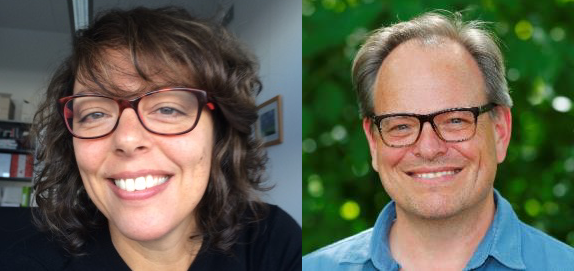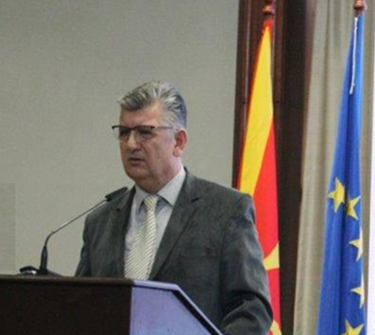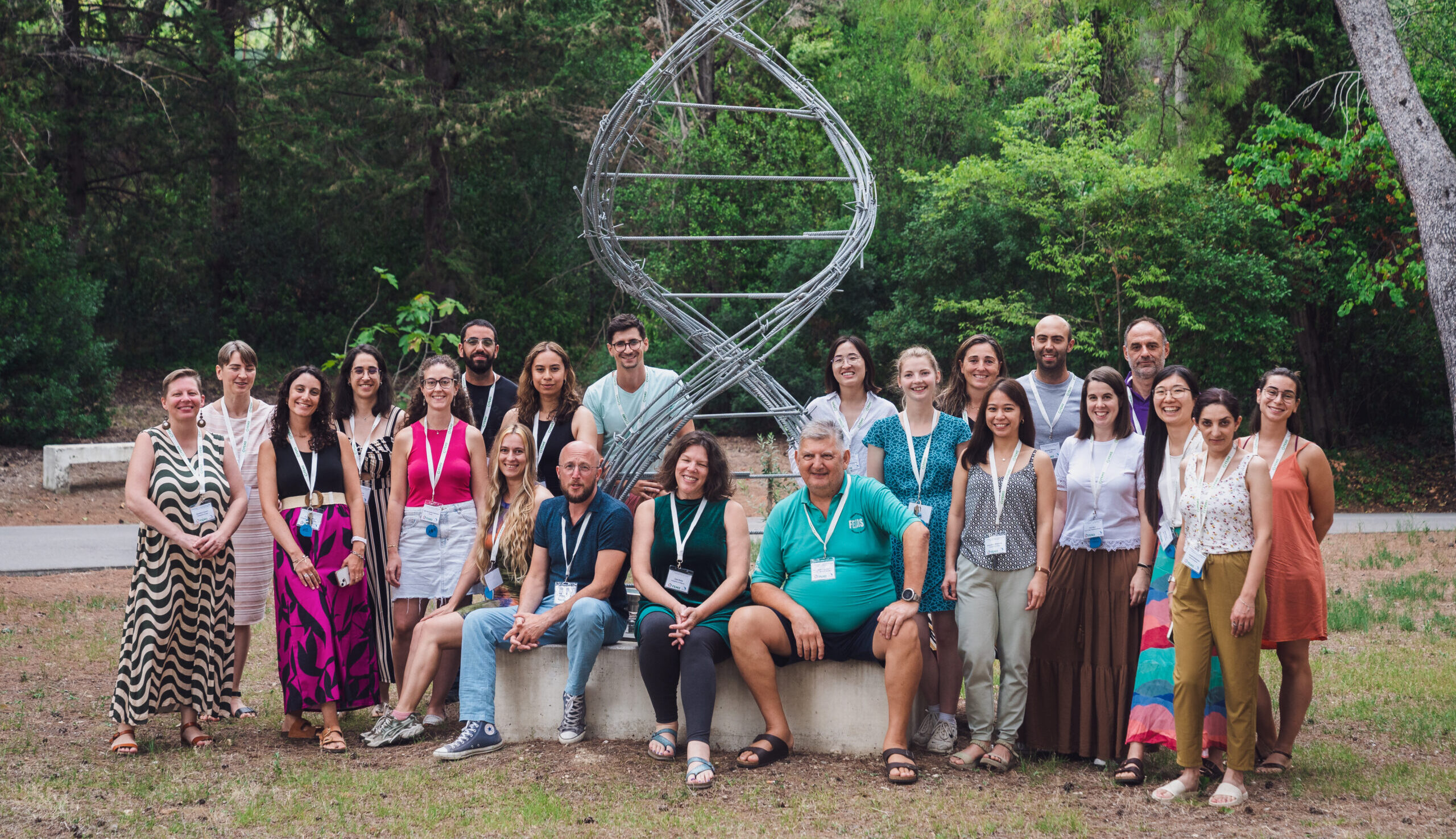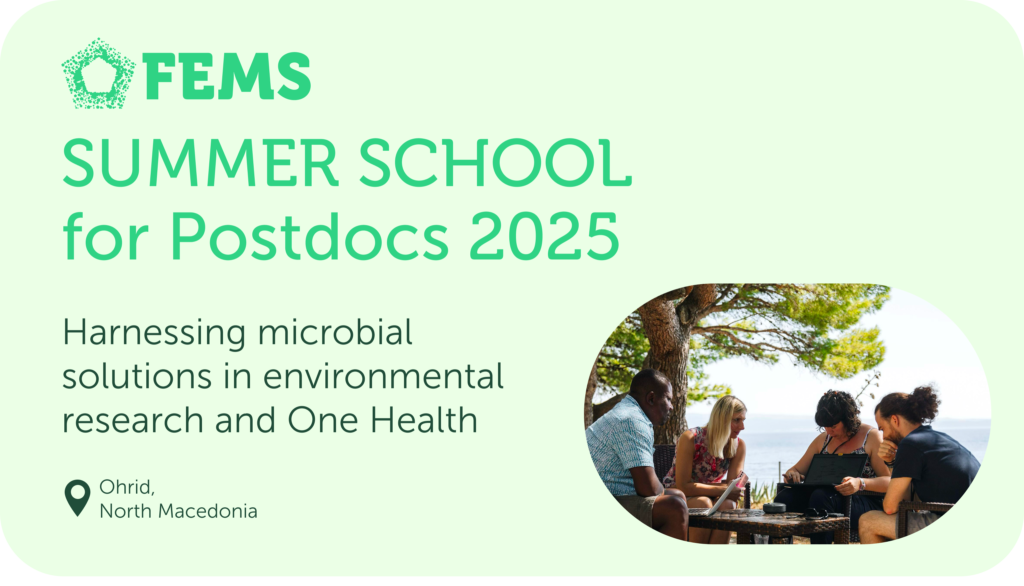FEMS Summer School for Postdocs 2025
Menu: Introduction – Applications – Programme
This has been the most valuable and enjoyable scientific event I’ve attended so far. The atmosphere was incredible, with inspiring co-directors and mentors, and fantastic postdocs. We learned, shared, and enjoyed every moment with one another. Thanks FEMS for the opportunity!” – Pablo Almela (USA), Student at the Summer School for Postdocs 2024
FEMS Summer School has been an incredible experience. From the beginning, meeting people from all over the world, all driven by a shared passion of making a change regards Climate Change by applying microbiology, has been inspiring. Our goal, now, is to transfer this knowledge to other aspects of life and other colleagues as well. The cultural and experiential exchange have been marvelous and rewarding. Opportunities like this one are crucial determining our future professional choices.” – Fiore Masotti (Italy), Student at Summer School for Postdocs 2024
Introduction
The FEMS Summer School for Postdocs recognizes 20 of the most talented and promising researchers from across the world. It is designed to support personal and professional development through 8 days of close work with top scientists, and to enable and encourage research collaboration across all fields of microbiology.
Applications closed on 18 April, 23:59 CET
Quick Facts
- Date: 2-10 September 2025
- Venue: Metropol Resort Hotel Ohrid, Naselba Dolno Konjsko bb, 6000 Ohrid, R.N. Macedonia
- Selected applicants: Applicants must be currently working in a postdoctoral position, or have completed a postdoc within 5 years (excluding special leave) of the end of the FEMS Summer School. Apply now!
- This years focus: Harnessing microbial solutions in environmental research and OneHealth
Please see our playlist of videos from past Summer Schools.
The content of the Summer School for 2025 will be focused on the following theme:
Harnessing microbial solutions in environmental research and One Health

The course aims to equip the next generation of scientists to recognise and address the environmental dimensions of human health and wellbeing, ultimately promoting sustainable practices that benefit both ecosystem and public health. — Co-Directors Dr Lueders and Dr Salles
The Summer School presents a unique opportunity for early career scientists to receive instruction and supervision from prominent academics, collaborate and network with fellow researchers from an international range of countries, and to discuss their own work as well as wider aspects of being a scientist. The applications system will open 19 March.

This event is an excellent opportunity to improve your knowledge and skills, open new horizons, start new collaborations and scientific projects, and may have a substantial influence on your scientific career” — Prof. d-r Vaso Taleski, Organizing Director
Costs
Successful applicants for the Summer School are expected to organise and pay the costs of their travel and travel insurance. The registration fee for each successful applicant is EUR 580 (incl. VAT) payable to Global Network Adv within 15 days of receiving an invoice after selection. The fee covers accommodation, catering, an excursion and dinner in the city, and attendance for the duration of the Summer School. Registered participants that need to cancel their attendance after paying their fee and before 1 July 2025, will be reimbursed 50% of the registration fee.
Organization
Prof. Joana Falcao Salles, University of Groningen, The Netherlands
Prof. Joana Falcão Salles is a distinguished professor in microbial community ecology at the Groningen Institute for Evolutionary Life Sciences (GELIFES), University of Groningen. With a Ph.D. from the University of Leiden and extensive postdoctoral research at INRA and CNRS in France, she has built a robust career exploring microbial diversity, ecosystem functioning, and metagenomics. Her research focuses on understanding the formation and functioning of free-living and host-associated microbiomes across diverse environments, including agricultural soils, salt marshes, and various hosts such as plants, animals, and humans.
Prof. Salles leads the Microbial Community Ecology cluster at the University of Groningen, overseeing a team of 25 researchers. She has coordinated several international projects, including the EU-funded VitiSmart and PotatoMETAbiome, and serves as the treasurer and executive board member of the International Society of Microbial Ecology (ISME).
A highly sought-after speaker, Prof. Salles has delivered keynote talks at major conferences like ISME and FEMS. Her research integrates experimental, molecular, and bioinformatic approaches, applying ecological theory to microbial communities with applications in agriculture and the bio-based economy. Prof. Salles’s work is pivotal in bridging fundamental ecological theory with practical environmental solutions.
Prof. Tillman Lüders, University of Bayreuth, Germany
Prof. Tillmann Lueders is a leading expert in ecological microbiology, currently serving as the Chair of Ecological Microbiology at the University of Bayreuth, Germany, a position he has held since 2019. He is also the Director of the Bayreuth Center for Ecology and Environmental Research (BayCEER). Prof. Lueders holds a doctorate in microbiology (summa cum laude) from Philipps-Universität Marburg and completed his habilitation in microbial ecology at the Technical University of Munich. His previous roles include Deputy Head at the Institute of Groundwater Ecology, Helmholtz Zentrum München.
With over 105 peer-reviewed publications, more than 7,400 citations, and an H-index of 48, Prof. Lueders is recognized internationally for his research on microbial communities in water and soil ecosystems. His work focuses on microbial carbon and nitrogen cycling, water quality, plastics pollution, and microbial ecophysiologies, employing advanced molecular, biogeochemical, and isotopic techniques.
Prof. Lueders actively contributes to the scientific community as a senior editor for FEMS Microbiology Ecology and a member of multiple editorial boards. He has supervised numerous doctoral and postdoctoral researchers and was awarded an ERC Consolidator Grant for his project on anaerobic pollutant degradation. His research significantly advances the sustainable use and protection of natural resources.
People involved in the organization from FEMS:
- Prof. d-r Vaso Taleski, Organizing Director
- Carianne Buurmeijer, FEMS Project Manager
- Joseph Shuttleworth, FEMS Marketing & Communications Manager
Previous FEMS Summer School for Postdocs Topics
2024 – Climate Change: Challenges and Influence on Microbial Safety of Water and Food
2023 – Cutting-Edge Microbial Technologies For A Sustainable Industrial Future
2022 – Microbiology For A Sustainable Future
2021 – Microbial Evolvability Mechanisms: Resistance, Biology, And Strategies To Defeat And Detect
2019 – Biological Robustness: Evolution Of Bacterial Resistance To Death
Menu: Introduction – Applications – Programme
Open access is key to supporting the FEMS mission of disseminating high quality research as widely as possible: when high quality, peer reviewed sound science is open access, anyone, anywhere in the world with an internet connection, can read it. All but one of the not-for-profit FEMS journals are fully open access (OA), with one journal, FEMS Microbiology Letters, offering free-to-publish and OA options.







